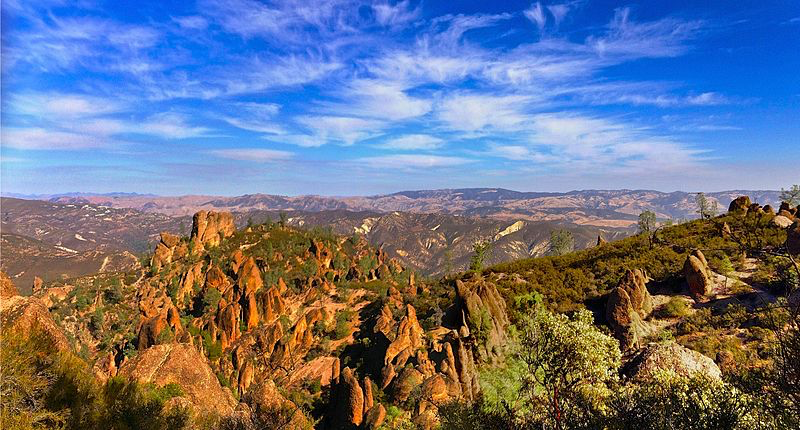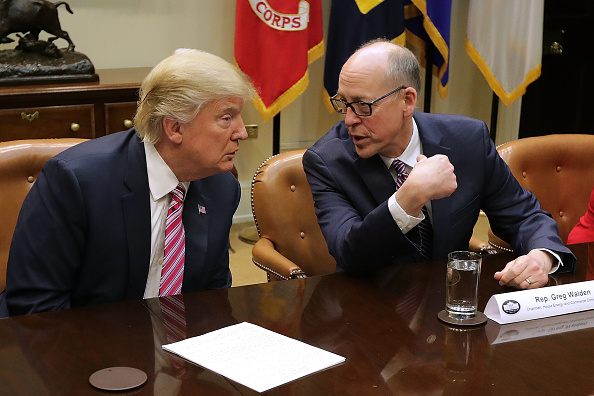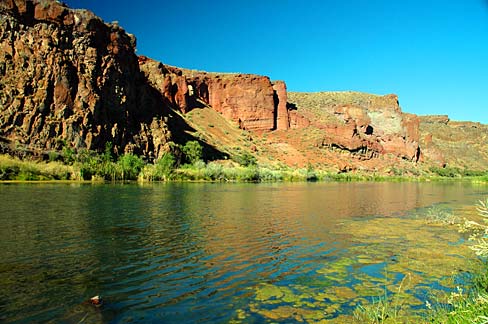Why is it that public lands conservation (and other environmental issues) always poll well, but our movement is regularly getting its ass kicked in Congress (and now by the administration as well)? It’s because we’re not political enough.
Read MoreCongress
Protecting the Pacific Northwest Offshore Ocean for This and Future Generations

Abstaining from mineral development offshore is the only way to protect the marine environment and the renewable resources that depend upon it.
Read MoreSelling More Heroin to Pay for Methadone: Oil Drilling in the Arctic National Wildlife Refuge: Part 2

As part of the tax bill recently signed into law by President Trump, at the behest Senator Lisa Murkowski (R-AK), Congress opened up Arctic National Wildlife Refuge for oil drilling. The next battle over drilling the in the refuge is about to commence. For the caribou and nature, each battle must be won or at least a draw. For the forces of darkness, they must only win once.
Read MoreSelling More Heroin to Pay for Methadone: Oil Drilling in the Arctic National Wildlife Refuge, Part 1

The pending tax cut legislation in Congress would open up the Arctic National Wildlife Refuge (ANWR) in Alaska to oil exploitation. What does oil drilling that harasses caribou have to do with taxes? It’s a long and tangled tale,
Read MoreA Solution to Corridor Collisions: A National Wildlife Corridors System

Just as it is in the public interest to have systems of corridors for the movement of vehicles, oil, gas, electrons, and water, it is in the public interest to have a system of corridors for wildlife.
Read MorePublic Lands Conservation in Congress: Stalled by the Extinction of Green Republicans

Many politicians call for a return to the era of bipartisanship as a solution to any woe. This call has resonance because the bipartisan era occurred in the living memory of baby boomers. But in the long arc of history this era did not last long, and the evidence of today does not give much hope of a return to it.
Read MoreBLM Areas of Critical Environmental Concern: Crown Jewels Open to Theft

Today these crown jewels are open to theft because of a crippling flaw relating to mineral exploitation.
Read MoreMany National Parks Arose From National Monuments

The originations of 25 of our 59 national parks, totaling 39.6 million acres, were first seeded by the establishment of a presidentially proclaimed national monument. Fourteen of these monumental 25 were established from more than one national monument proclamation, in that were expanded by later presidents.
Read MoreThe National Landscape Conservation System: In Need of Rounding Out

In 2000, Secretary of the Interior Bruce Babbitt created, by administrative order, the National Landscape Conservation System (NLCS), to “conserve, protect, and restore these nationally significant landscapes that have outstanding cultural, ecological, and scientific values for the benefit of current and future generations.”
Read MoreOregon’s Wildlands Should Matter At Least as Much to Oregon Legislators as Alaska's and Utah's

However, their cosponsoring a tundra wilderness bill in Alaska and a red rocks wilderness bill in Utah—at relatively large acreages of 1.6 and 9.1 million acres respectively—contrasts unfavorably with the Oregon congressional delegation’s efforts to conserve and restore Oregon’s green forests, tan deserts, and blue waters for the benefit of this and future generations.
Read MoreThe Columbia River Gorge Is Dead; Long Live the Columbia River Gorge—Unless Greg Walden Has His Way

In 1986, Congress enacted the Columbia River Gorge National Scenic Area Act to, among other things, “establish a national scenic area to protect and provide for the enhancement of the scenic, cultural, recreational, and natural resources of the Columbia River Gorge.” In 2017, Representative Greg Walden (R-2nd-OR) proposes to throw it out the window.
Read MoreThe Proposed Oregon Wildlands Act of 2017: Very Good but Not Yet Great

The congressional conservation pipeline is clogged. This is not because it is too full of fine legislation that would elevate the conservation status of certain public lands by designating wilderness, wild and scenic rivers, and other special protection areas, but because of the general dysfunction of Congress. (I hear it was worse before the Civil War.) One bill in that pipeline, sponsored by Senator Ron Wyden (D-OR) and cosponsored by Senator Jeff Merkley (D-OR), is the proposed Oregon Wildlands Act (OWA) of 2017 (S.1548, 115th Congress).
Read MoreClosing the Mining Loophole for Wild and Scenic Rivers

The federal public lands along more than half of the stream mileage in the National Wild and Scenic Rivers System (NWSRS) can be mined, notwithstanding its congressional “protection” in wild and scenic rivers (WSRs). This is because the Wild and Scenic Rivers Act of 1968 (WSRA) established three different classifications for WSR segments—wild, scenic, and recreational—and banned mining or not based on the classifications. The WSRA needs fixing to offer uniform protection against mining in the NWSRS.
Read MoreNow That’s a Member of Congress!

With some tweaks, the proposed Northern California Conservation and Recreation Act can be a great bill that when enacted into law will be a gift of enduring benefit to this and future generations of North Coast Californians, all Californians, and all Americans.
Read MoreOwyhee Canyonlands: Faux Conservation and Pork Barrel Development

The Owyhee Canyonlands in Oregon are worthy of inclusion in the National Park System, administered by the National Park Service. Now that would be local economic development! The Owyhee Canyonlands are worthy of designation by Congress as an overarching national conservation area with underlying wilderness and wild and scenic rivers where appropriate. The Owyhee Canyonlands are not deserving of a half-assed mineral withdrawal that locks in other harmful uses.
Read MorePreremembering Jim Weaver, Oregon Conservationist

As Jim Weaver quietly lives out his days in his beloved Oregon, this and future generations are in his debt because even though he represented the congressional district ranked highest for timber production in the nation, Weaver was a strong and tireless proponent of wilderness. There are wilderness areas today safely on the map, both inside and beyond his congressional district, because Jim Weaver stood up for the wild in Oregon in ways that no elected official had done before or has done since.
Read MoreThe Trump Administration Takes Out 17 International Biosphere Reserves
The United Nations recently announced twenty-three additions to the World Network of Biosphere Reserves (WNBR). At the same council meeting where those additions were made, a request by the United States to remove seventeen was also approved. The Trump administration has trumpeted its general disdain for the United Nations, but this withdrawal was done without fanfare and so received very little press coverage.
Read MoreFederal Systems for the Conservation and Enjoyment of Lands and Waters

Federal conservation systems are an unqualified social good and generally provide elevated protection and better management to important federal public lands and to resources and areas of high national significance. All existing federal conservation systems could be improved, and none should be weakened or discarded. Those that haven’t yet been codified by Congress need to be.
Read MoreThe High Cost of Cheap Grazing

It costs more to feed a domestic housecat than to graze domestic livestock on federal public lands.
Read More“Birds should be saved for utilitarian reasons; and, moreover, they should be saved because of reasons unconnected with dollars and cents. A grove of giant redwoods or sequoias should be kept just as we keep a great and beautiful cathedral. The extermination of the passenger-pigeon meant that mankind was just so much poorer. . . . And to lose the chance to see frigate-birds soaring in circles above the storm, or a file of pelicans winging their way homeward across the crimson afterglow of the sunset, or a myriad of terns flashing in the bright light of midday as they hover in a shifting maze above the beach-why, the loss is like the loss of a gallery of the masterpieces of the artists of old time.”
Theodore Roosevelt: The First and Greatest Public Lands Conservationist
This least outdoors-loving American president makes me appreciate the most outdoors-loving president, Theodore Roosevelt. TR spent many a night outside of a bed under the open stars, including three nights in the Sierra with John Muir. Before TR left office in 1909, he had established, sometimes with Congress and sometimes without: 51 bird reservation, four national game reserves, five national parks, 18 national monuments, and 150 national forests. I fear the losses to be toted up when Trump leaves office.
Read More